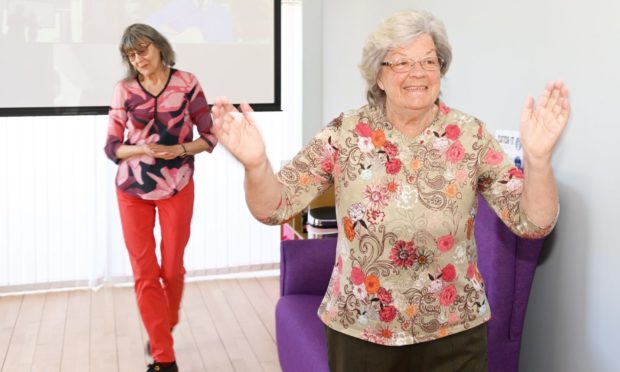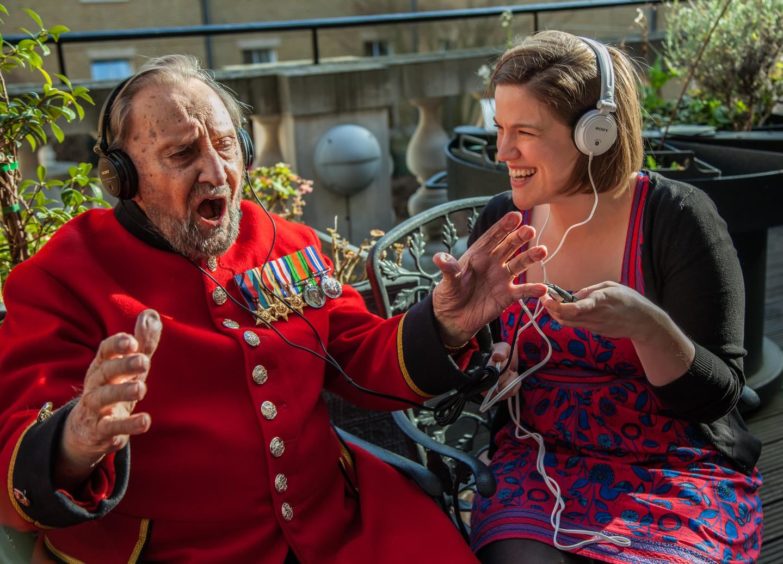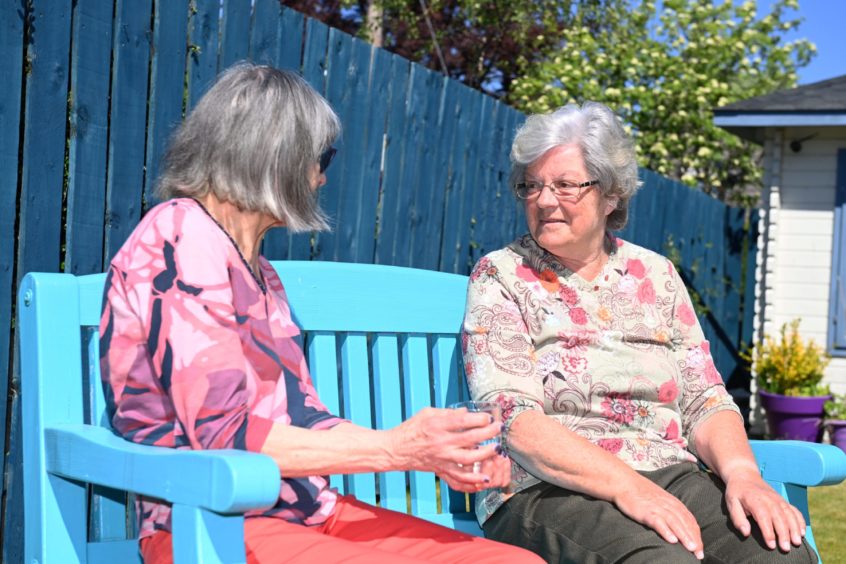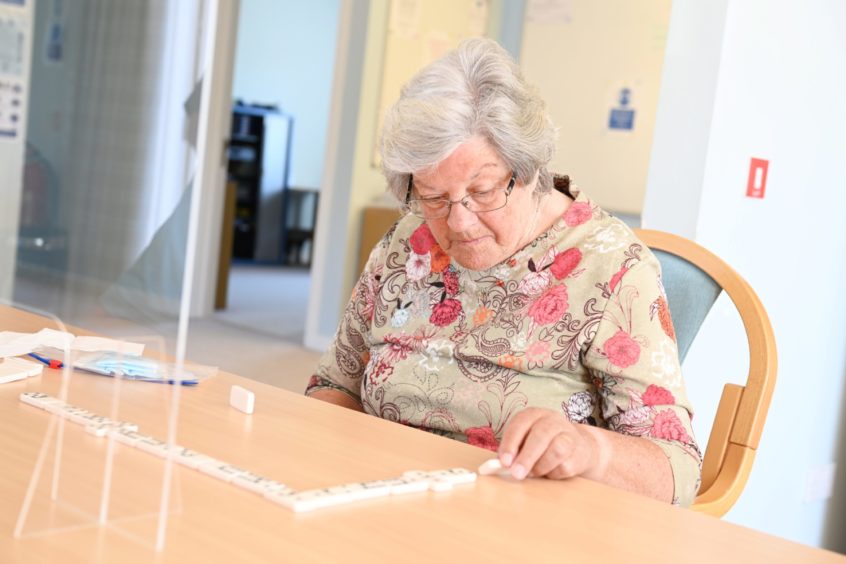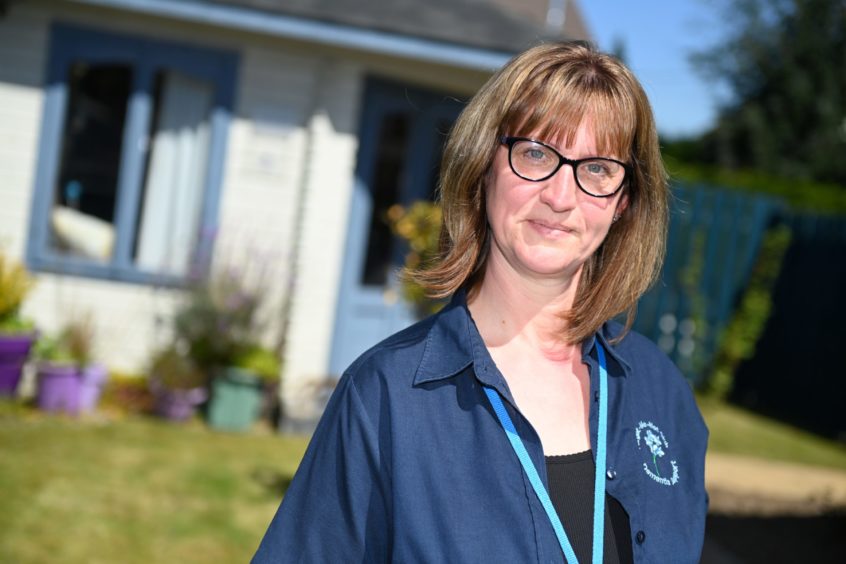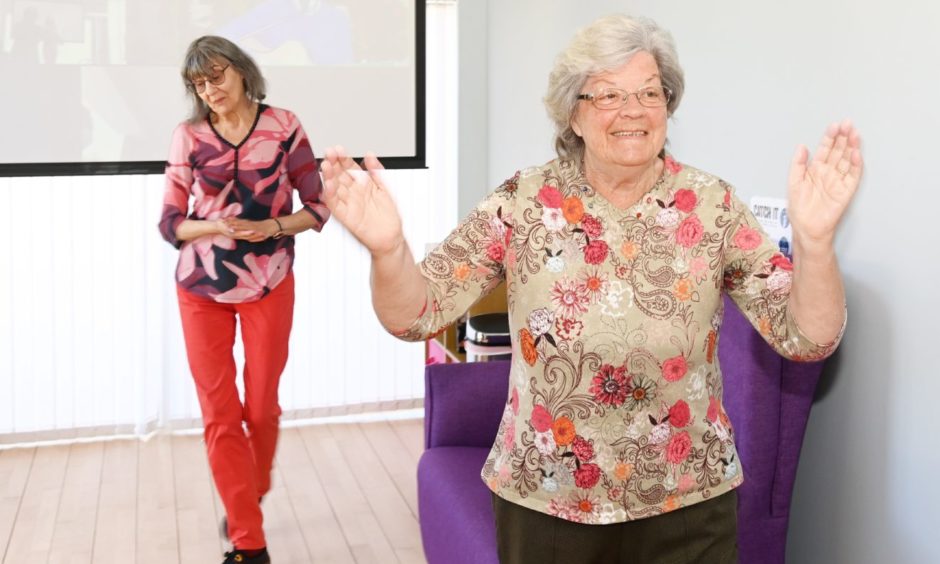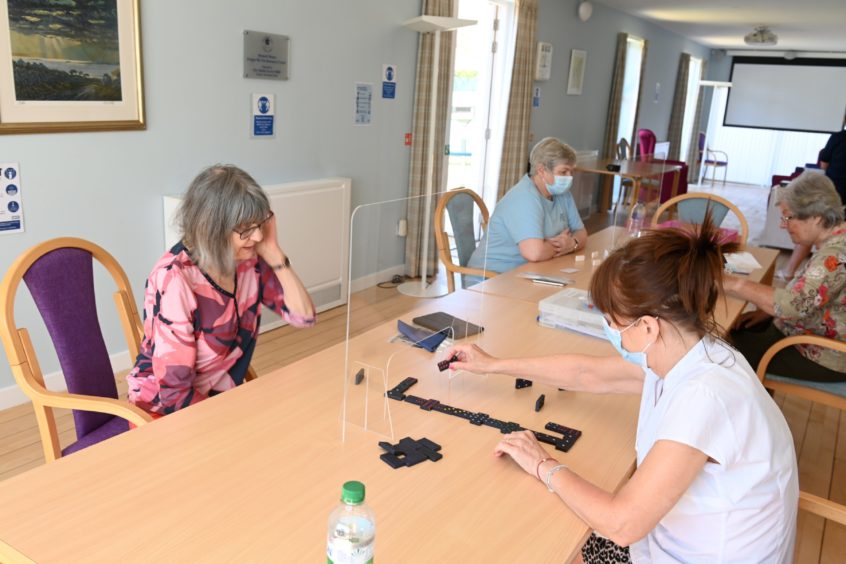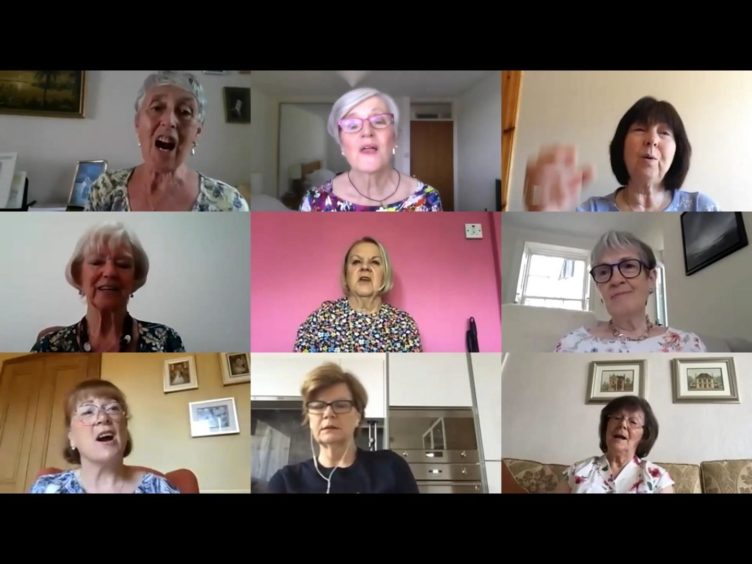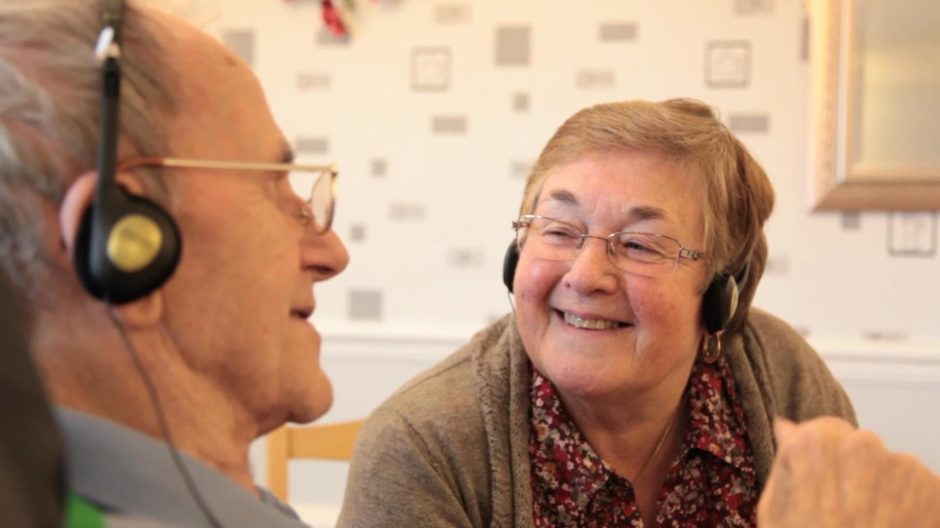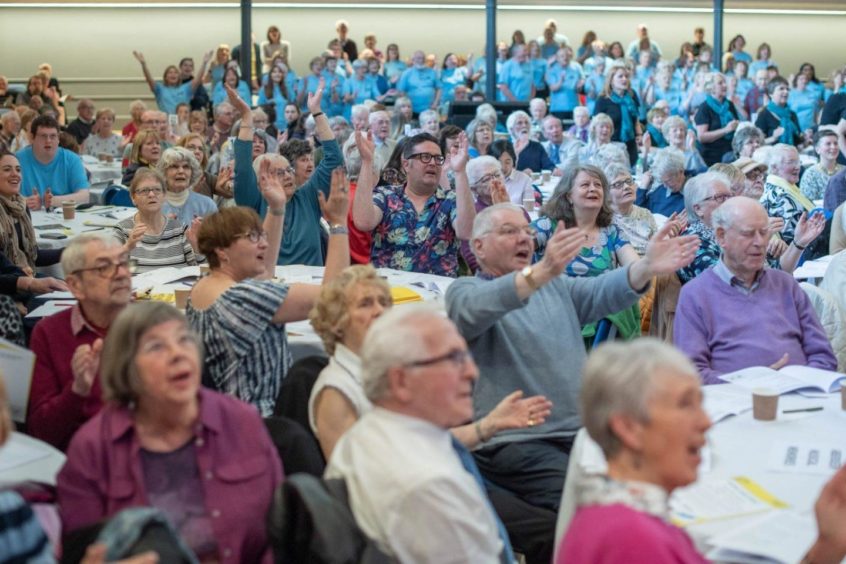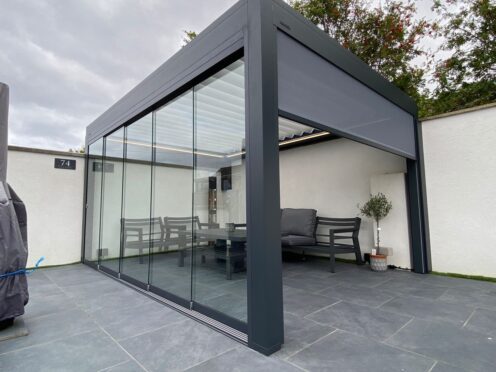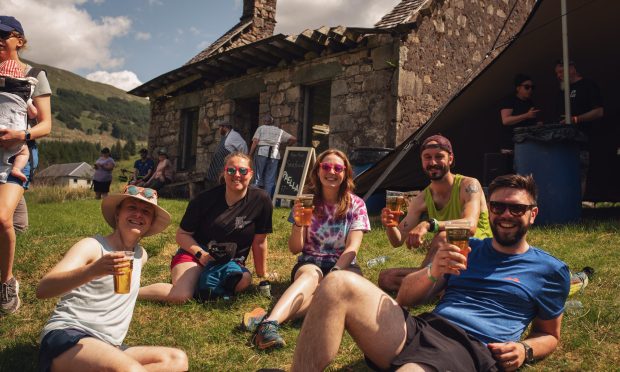The swelling crescendo of a live orchestra, or the opening notes to the grungiest of rock songs.
Music accompanies us through life, starting in the womb with the steady thud of a mother’s heartbeat.
It is the joy of a nursery rhyme and the abandon of a toddler’s uninhibited dance moves, little feet stomping with delight.
The teenage years fuelled by angst and the discovery of new bands and rebellious artists, who seem to capture how you feel in that exact moment.
We can all remember the heaving dance floors of our youth, the tracks which would cause a stampede as dozens of bodies swayed and glittered under the disco ball.
Music seems to say what we cannot; relied upon in moments of great joy and also sadness.
The pandemic has been indescribably difficult, and although we have faced the same roaring storm – the vessels which carry us are different.
To make sense of something for which there is no reference point is hard enough, but how can you navigate lockdown when you are living with dementia?
The cruelty of Alzheimer’s disease can leave people robbed of their memory as the condition progresses, and fearful of the unfamiliar world in which they find themselves.
But research has proven that music can delay cognitive decline, because key brain areas linked to musical memory are relatively undamaged by the disease.
Music therapy is now commonplace, and plays an important role in dementia care.
From singing groups to music classes, incredible work takes place both in the community and within care homes.
Such groups are now tentatively reopening, having been forced to stop meeting in person for the past year.
That does not mean to say that the north-east fell silent however, as programmes were adapted for online use.
We spoke with charities determined to make a difference, to find out why they haven’t missed a beat.
Forget Me Not Club, Banchory
Based at Bennett House, the Forget Me Not Club (FMNC) has been providing invaluable support to those living with and caring for people with dementia, since 1999.
Run by dedicated staff and volunteers, the group provides numerous activities, and also advises and educates carers on the complexities of the disease.
Sessions have recently restarted in person, although virtual sessions were held throughout lockdown with the help of local entertainers, historians and musicians.
Live entertainment continues to be streamed at the resource centre and to clients at home, in a bid to keep everyone connected.
For general manager Eunice Gardyne, it is a joy to welcome people in person again.
“We provide daytime respite for families Monday to Friday, and members can enjoy a day of activities,” she said.
There is plenty on offer, from pilates to sessions with local musicians.
When lockdown commenced, the programme of events was forced to go online.
Lockdown has been an absolute heartbreak, because we are unable to have that face-to-face contact.”
“And for people living with dementia, face-to-face is what they need.
“We ran virtual sessions, but a lot of our members are in their seventies and beyond, and aren’t particularly technical
“We managed to do virtual sessions with iPads specifically designed for older people, where we could send a Zoom link.
“But when you have dementia, the person on the screen is just a face or a voice to you.
“Not a single member contracted Covid, yet we are still into the double figures for members who have passed away.
“It’s down to pure isolation.”
With the resource centre back up and running, the team are determined to continue in their work.
“We want people to maintain their independence and dignity for as long as possible,” said Eunice.
“Whether we have a band or just music playing, seeing people out on the dance floor smiling away. That’s what touches my heart.
“Of course there are challenging days, but we do what we’ve got to do to make sure our members are active and enjoy their time here.
“Fear has a lot to do for people who are living with dementia. The colour black, for example, is a big no.
“They see black as a dark hole, with fear of falling into that hole.
“But music really can help bring people back.
“Someone can have very little conversation, and then we put a song on from their era, they will sing it word perfect from start to finish.”
The charity’s main goal is to make the community as “dementia friendly” as possible.
Prior to Covid, the local nursery group visited the club and Eunice also held talks at primary schools.
“Our members loved seeing the children, and it’s a way of educating children as young as three or four,” she said.
“By the time a child reaches age seven, their ears can start to prick up if I’m doing a talk.
“And they’ll realise that dementia must be what nana has, etc.
“A lot of people have no experience of dementia unless a family member has it.
“The lack of understanding is mainly down to lack of knowledge. We do our best here, we’re about inclusion.
You’ve got to remember that the person is someone’s mother, father, sister or brother.”
“They may have been a surgeon in their working life, they are still a person and they need to be included.”
Jessica Bruce, Alzheimer Scotland
Roughly 30 people would usually attend Musical Memories group, which is held in the Aberdeen Resource Centre run by Alzheimer Scotland.
Singing along to classics has been swapped for an online event, with people joining in from across Scotland.
The charity believes that although the pandemic has been challenging, more people have been able to benefit from their services.
“The pandemic and subsequent lockdown restrictions were not easy for anyone, but the disruption, loss and isolation has had a particularly devastating impact on our dementia community,” said Jessica.
“Musical Memories is now an online group which meets over Zoom for virtual singing, dancing and reminiscing and, thanks to the record feature, the group can be saved for others to enjoy who weren’t able to make the live session.
“Going digital has removed the geographical boundaries and now there are requests from all over Scotland to join in the fun.
“The last year has shown us the importance of widening the reach for our activities and support services.
“We want to be there, making sure nobody faces dementia alone, wherever they are, whenever they need us – and that’s why we have started building the UK’s first Virtual Resource Centre.”
The online space will enable people to access resources from their own home, with a zone specifically for carers as well as access to a dementia link worker.
Alzheimer Scotland has also been working with fellow dementia charity Playlist for Life in a bid to help more people benefit from music.
Michelle Armstrong-Surgenor, Playlist for Life
Playlist for Life was launched in 2013, with one clear aim: anyone living with dementia should have their own personal playlist, and anyone who loves or cares for them should know how to use it.
The charity needs no convincing as to the power of music, after its founder, writer and broadcaster Sally Magnusson, witnessed it firsthand while caring for her mother.
Research for her book, Where Memories Go: why dementia changes everything, led Sally to discover that the use of personal music was not widely shared with families caring for their loved ones.
The team can now help people gather together a playlist, consisting of songs which have been the soundtrack to their life.
From training health professionals and care home workers, to establishing help points, it has been a busy eight years.
The pandemic saw the charity completely rethink its strategy, with its service in more demand than ever before.
For chief executive Michelle Armstrong-Surgenor, making sure as many people as possible can be helped is a very personal quest.
“I joined Playlist for Life because my grandma had dementia, and my mum was her primary carer for around seven years,” said Michelle.
“Grandma lived at home with us for most of that period, and I think my mum had this feeling of helplessness.
“She didn’t know how to make things better.
I think it’s really important to realise that the person isn’t lost to you.”
“My grandma had no idea who I was. But when we played Vera Lynn, music from her time, wow.
“Because gosh, she still loved music.
“It’s a personal ambition, I don’t want other families to experience what my mum went through in caring for my grandma, thinking that there was nothing she could do to help.”
The charity has numerous help points across Scotland, enabling organisations to help people curate a playlist.
From Skerryvore Practice in Orkney to Western Isles Libraries, MP3 players have been sent far and wide in a bid to make memories heard.
But when the pandemic forced such organisations to close, the team opted for a more direct approach.
“In the first lockdown in particular, there was so much guidance about shielding,” said Michelle.
“With no access to their support network which happened pretty much overnight, people were left very isolated.
“Our network of community help points closed, but the need was greater than ever and we had the responsibility to help people.
“We changed our support services to an online platform and set up a playlist request service.
“We have always been about enabling other organisations to help people curate their playlist.
“But as they had to come to a temporary pause, we jumped in and did this directly.
“We sent out more than 300 MP3 players, and we’ve noticed a massive shift in public opinion as to just how valuable music is.
It’s a simple yet powerful way of connecting people.
“As a result of that shift we’ve had an increase of more than 400 help points, which is wonderful.
“We want to embed the use of personal music into every day, so it becomes part of health and social care alongside general public knowledge.
“We want it to become as commonplace as brushing your teeth, where both families and carers know how to make a playlist.”
Kirsty Walker, The Dementia Inclusive Singing Network
This incredible network is run by Luminate, and brings together choir and song leaders across Scotland to help ensure people affected by dementia are able to take part in their singing groups.
For manager Kirsty Walker, it was vital to keep people singing throughout the pandemic.
“For many people, coming together as part of a singing group was an important part of their routine and losing this social connection has been devastating,” said Kirsty.
“Over the past few months we’ve been working with our members to encourage and support people living with dementia to keep singing.
“Many singing groups moved online, which has presented particular challenges. However, with perseverance and lots of experimentation we found there are ways to make those online experiences as inclusive as possible.”
She believes a blend of remote and face-to-face experiences will be the norm moving forward, in a bid to make sure that as many people can continue to benefit as possible.
To find out more about Playlist for Life, visit www.playlistforlife.org.uk
For more information about Forget Me Not Club in Banchory, call 01330 822655 or visit http://forgetmenotclub.co.uk
To find out more about Luminate, visit https://luminatescotland.org
